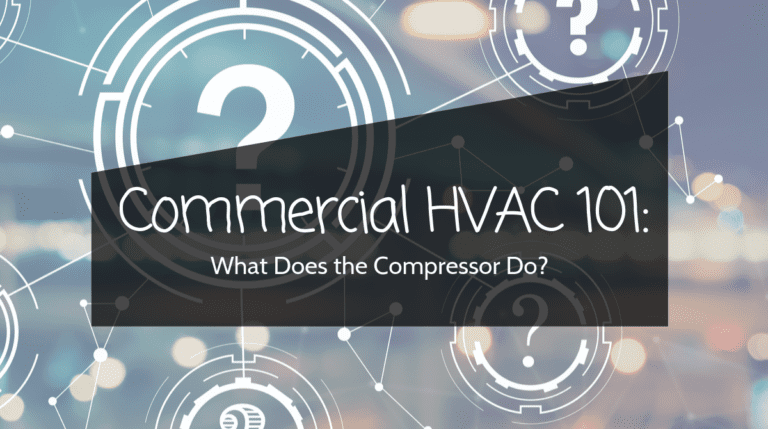Air Conditioning Compressor Basics
The compressor within your commercial HVAC system is one of many essential components that work together to keep your building cool and comfortable. Your system also includes a condenser, an evaporator, and an expansion valve that must all work together for your system to be efficient. Warm air is drawn into the system and forced to pass through a refrigerant that absorbs the heat and cools the air. It then travels back into the larger areas of the building, lowering the temperature to the desired degree.
Over time, the constant contact with the warmer air may begin to reduce the effectiveness of the refrigerant or coolant being used. The effectiveness of the refrigerant will also depend on how well the other components function. This is especially true of the compressor that helps to maintain the flow of the refrigerant so that it can maintain a comfortable temperature.
Types of Compressors
There are two common types of HVAC compressors. The scroll compressor uses two large rollers. One that continually spins in place and another that orbits around the other but does not rotate. The gaps that are produced between them work to compress the refrigerant. Scroll compressors are more effective and tend to work more efficiently than other types.
A reciprocating compressor uses a cylinder/piston set-up much like what is used to power your car’s engine. The power from the motor is used to compress the refrigerant as it is pumped into the cylinder. There are several types of reciprocating compressors found in commercial HVAC systems.
Proper Maintenance
In order for your commercial HVAC system to be fully effective, it must be properly maintained on a regular basis. This includes a thorough inspection of the housing as well as cleaning any coils or other components that may be exposed to the elements. During your annual maintenance check, the level of refrigerant must also be checked. If the refrigerant becomes weak or is allowed to lose its ability to keep the air cool, it can actually damage the system. It is also essential that the compressor and other components are also thoroughly inspected. This will allow the tech to discover any worn parts or areas that may need to be taken apart and rebuilt.
Making Repairs
During an inspection, the HVAC professional may find some parts or components that are worn or not working properly. Don’t put off making the necessary repairs! Not only will it affect the energy efficiency of your unit, but it can also cause extensive damage that may lead to more extensive repairs. Regular maintenance of your system can reduce much of the wear and tear that is associated with age, but it won’t stop it from happening. When repairs are needed so they don’t turn into expensive repairs in the future.
Understanding your commercial HVAC system and how it works may be confusing. Knowing the parts and what they do, however, will help you to effectively manage your system. The compressor and many of the other components will continue to do their jobs for many years if you maintain them properly.
If you determine a replacement compressor is your best course of action, a reputable company like Compressors Unlimited offers cost-effective solutions to your remanufactured compressor needs.












